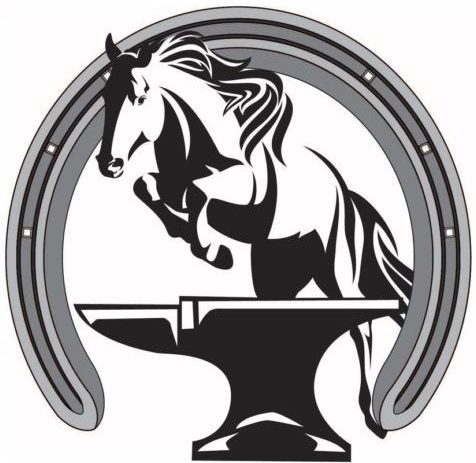As the weather is cooling off and shows and trail rides are winding down for the year, we have to consider what care is needed for horses’ hooves. For most horses, hoof care during the fall and winter will look about the same as it does the rest of the year, but for others, it will be very different. So how do you know what your horse needs? First, as always, make sure you have a knowledgeable hoof-care professional that you trust. Some of the considerations that have to be taken into account for this seasons are scheduling, traction, snow, workload, and nutrition.
It is a commonly held belief that horses don’t need to be on the same schedule during the winter as during the warmer months due to hooves not growing as quickly. This is only partially true, and in many cases not true at all. It has been shown that in extreme cold, hoof growth does slow (however most of these studies were done in sheep). Here in Indiana we do not typically see the extreme cold (though we can) that leads to slower growth.
For traction considerations it depends on if you will riding in the snow or taking the winter off. If you are riding then it may be helpful, and safer, to have studs put in the shoes to give better grip on ice. Even if you are not riding, what kind of surface is your horse on through the winter? Trying to negotiate icy pastures can lead to pulled or sore tendons, ligaments, or muscles. Adding traction to a horse that already has to have shoes is a good way to help prevent these issues and give him more confidence moving around in the field.
Generally snow does not cause an issue for horses that are able to go barefoot, however for a horse with shoes on, the snow and ice can pack into hooves making it difficult to walk safely on hard ground. By using snow pads we can prevent snowballs from forming, thus making the horse safer and less prone to injury as well as saving you from having to pick snow out of their hooves.
Nutrition is another determining factor in hoof growth. For a horse whose diet is steady throughout the year, hoof growth most likely will not slow down during the winter. Horses that have a very different diet in the winter, hoof growth could possibly slow down.
For horses that are not working during the winter and have solid hoof wall and thick soles they will most likely be fine barefoot during the winter. For those with lesser quality feet or that will still be working hard they may still need shoes to protect their feet or add traction. Workload is also a major determining factor in hoof growth, those that go from lots of work in the summer to very little during the winter may be able to go a week longer than normal and still maintain a healthy foot. Discuss with your farrier what will be appropriate based on what your horse will be doing.
